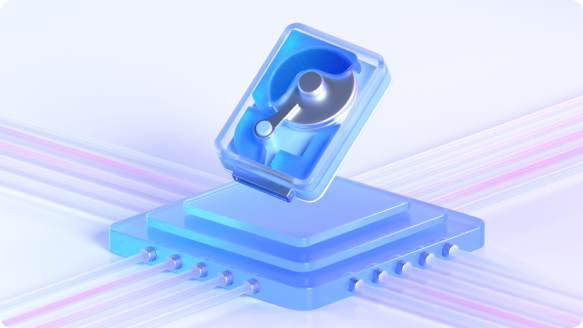Disk Image Mounter
Disk image mounter make a file accessible by users in your system. Basically, it is software that makes various disk image files readable into different OS platforms.
These disk image files are not any physical disks but, they are logical hard drives. So you have to mount disc image files if you want to recognize them.
The disk image files like DD, LEF,E01, ISO, DMG, and IMG are the hard drives data formats. If you unmount the disk image file opposite to mount, it will be inaccessible by the computers.
You mount disc image files due to the following reasons:
- To extract data
- To get evidence
In this article, we will discuss about the effective ways of sik image mounter.
Part 1: Disk Image Mounter for Windows
You can mount both .IMG and .ISO disk image files in Windows 10 without using any third-party tool. You just have to double-click a .IMG and .ISO disk image that you desire to make available.
If it does not work properly, click on “Disk Image Tools” on the ribbon and tap on “Mount” option. You can also see this feature on Windows 8 and 8.1.

To unmount the disc, right-click on the virtual disc drive and choose “Eject” option. It will unmount the disk, and the virtual disk drive will automatically disappear from the system until you again mount a disk.
If you want to mount IMG or ISO images in other formats like BIN/CUE, MDS/MDF, NRG, or CCD, use the open-source WinCDEmu utility.
To do so, once you install the image file, right-click on it. Now, click on the “Select drive letter & mount” option. By this, you will be able to mount other types of images that Windows doesn’t support.

Part 2: Disk Image Mounter for Mac
On a Mac, if you double-click on standard disc image formats, you will be able to mount them. Therefore, download the . DMG file. Double click on it to access it and install it on Mac applications.
The DiskImageMounter application can mount different images files such as .IMG, .ISO, .CDR, etc.You just have to double-click on the file to mount it. If it can not mount properly, the following are two other methods to mount disc image files”:
Method 1: Select any disk image file and right-click on it. Now point to the “Open With” option and tap on “DiskImageMounter.”

Method 2: Open the disk utility application. Press Command+Space. Now type disk utility and click on Enter to open it.
Now Tap on the “File” menu, choose “Open Disk Image,” and whichever disk image you want to mount, select it.

To unmount the disk image file, go to the Finder’s sidebar. Then, click on the “Eject” button.

Part 3: Disk Image Mounter for Linux
Here are the ways of disk image mounter for Linux:
Method 1: Linux’s Unity desktop and GNOME have an “Archive Mounter” application. It can help you to mount ISO files and similar disk image files graphically.
To use it, select any disk image file and right-click on it.
Now, go to “Open With” and select the “Disk image mounter” option.

To unmount the disk image, click on the “Eject” icon in the sidebar.

Method 2: You can also mount the disc image file with a Linux terminal command. It is helpful if you use the command line or your Linux desktop doesn’t provide any tool.
Open the Terminal window from the Linux desktop’s applications menu to mount the disk image file on Linux. Now type the command “sudomkdir /mnt/image” to create a directory to mount the disk image.
Later you can access the contents of the disk image at this location.
Next, to mount the disk image, type the command:
“sudo mount -o loop /home/NAME/Downloads/image.iso /mnt/image”. It will help you to replace “/home/NAME/Downloads/image.iso” with the type of disc image you desire to mount.
Later, to unmount the disc image, use the umount command: “sudoumount /mnt/image”

If you want to mount a more obscure disc image format that the above commands can not detect. Use specifically designed tools.
Part 4: What if Disk Mounter Can't be Opened?
Some of the scenarios that will trigger this problem on Mac computers are:
- Corrupt DMG File: Sometimes, a dmg file that you download can be corrupt. Or if you are unable to download the file from a browser correctly, then you can not open the Disk Mounter.

- File Format: Sometimes, your file is incompatible with the OS available on your system.

- Catalog Files Node:If the catalog files node that keeps the record of the file’s type and accessing type gets corrupted, the system can not generate them. This may cause a problem.

Solutions to the Above Mentioned Problems
· Repairing Corrupt DMG File
If the dmg file is corrupt or downloaded incorrectly, then download the same file again. It will ensure that there is no download problem.
In addition, download the dmg file again, keeping the download assistant plug-ins off. You can also try to download the file in other browsers or use the Terminal.
Step 1:Click on the Magnifying glass at the right top corner or press “Command + Space.”
Step 2:Look for Terminal, Then, Enter
Step 3:Now, to download a file, type the following command in Terminal:curl –O <URL>
· Mount it from Command Line
If“hdiutil attach disk.dmg” does not work correctly, it creates a problem opening disk mounter. Then, try the commands below:
Step 1:Press on the “Command + Space” buttons. Click on the magnifying glass on your screen
Step 2: Look for “Terminal.” Now Enter to open it
Step 3: You can create the device node by typing the following command: “hdiutil attach –noverify –nomountdisk.dmg”
Step 4: Now, to find the disk list, type the command: “diskutil list”
Step 5: Mount the device by typing the following command: “diskutilmountDisk /dev/disk1”
· File System Format
When the file you want to mount is not compatible with OSX, find the disk format suitable for OSX running on your system. And ensure that the download file is compatible with your system file format.
To check if your system is using APFS or HFS, follow the steps below:
Step 1:Press on “Command + Space.” Now, click on the magnifying glass at the top right.
Step 2: Search for “Terminal”. Open it.
Step 3: Type the command:“diskutil info /”
Step 4: Check the “Type (Bundle)”. It will display whether you are running APFSorHFS.
· Wondershare UBackit

If none of the above methods have resolved your problem, use Wondershare UBackit. It is a third-party tool that can help you scan the repositories to find and replace corrupt or missing files. It is a fast and reliable way to disk image as well.
Conclusion
Now, you know what a disk image mounter and have learned the various reasons to mount disk image files.
What's Wrong with Drive
- Recover Your Drive
- Fix Your Drive
- Format/Wipe Drive
- Know Your Drive













 ChatGPT
ChatGPT
 Perplexity
Perplexity
 Google AI Mode
Google AI Mode
 Grok
Grok























Amy Dennis
staff Editor